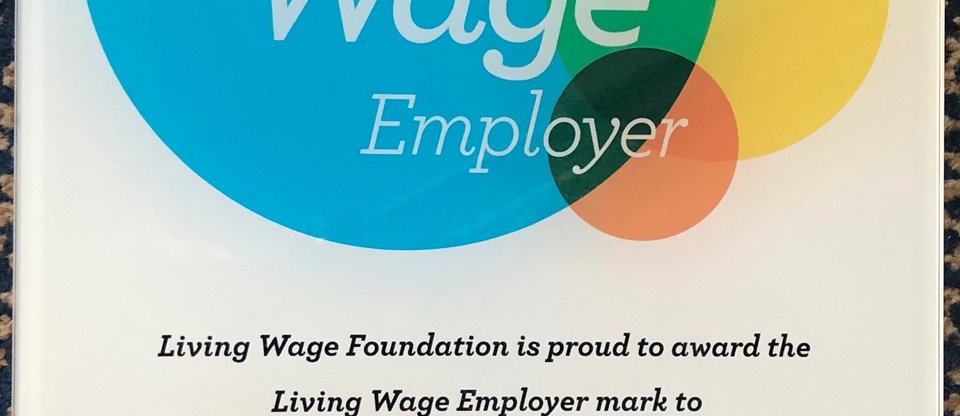Darren Worsnop of Leeds Trinity University explains their Living Wage journey
Following his interview with Calum Carson, Ashley Colbourn of Leeds Trinity University has spoken to the University's head of HR Systems and Projects Darren Worsnop to discuss their journey to gaining Living Wage Foundation accreditation.

The Living Wage Campaign is something Leeds Citizens have been working hard to promote for many years, with the aim of convincing more Leeds-based businesses to gain accreditation from the Living Wage Foundation.
Horsforth-based Leeds Trinity University has done just that and pay the £9.00 per hour rate to all their full-time, part-time and contracted in staff.
We spoke to Darren Worsnop, the university’s Head of HR Systems and Projects, to gain more of an idea of how they came to apply for accreditation and what benefits and/or drawbacks they have experienced ever since.
“Leeds Trinity’s paid the Living Wage for over four years now. It really has helped us from the recruitment point of view and we’re very much into caring for the community here. We want to make sure our staff and our students who also work here get paid the Living Wage and have a good way of living”.
The university was founded in 1966 as a teacher training college, and currently has 450 core staff as well as several casual staff, who cater to circa 3,000 registered students.
Darren added that he believed paying the Living Wage is also a moral issue and is something that councils and the Government could be looking to do more to promote.
Unfortunately, the Living Wage is particularly an issue within universities, with top-level executives often earning high salaries whilst the lower end workers earning the bare minimum. Darren gave his views on the matter, explaining that the nationally agreed pay scales are likely to be a key factor. He said:
“I think the main reason for that is probably the pay squeeze within our pay scales. We have a nationally agreed pay scale, and with the Living Wage increasingly it does tend to put a bit of pressure towards the bottom end of that scale. This is probably the reason that there aren’t many accredited universities, but I do think the positives outweigh any negatives around that, particularly reputation-wise by showing that you are committed to your staff”.
He also commented on the work of Leeds Citizens, saying that he hopes they continue their work towards making Leeds a Living Wage city:
“It’s a good thing from an economic point of view, making sure we have great skills in the city. It’s also great that businesses within the city want to support their workforce. It’s quite straightforward in my mind – if you look after your people, they’ll look after your business. They’ll be willing to put more work in, be more committed and be proud of who they work for, which is what all businesses should be aspiring for”.
If the Living Wage campaign is something you wish to discuss further, please get in touch with Tom Chigbo, senior organiser at Leeds Citizens, via email: tom.chigbo@leedscitizens.org.uk .






